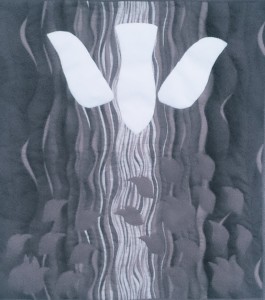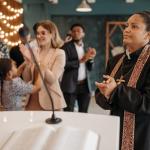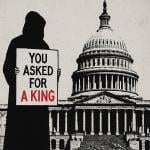In an effort to get up-to-date on posting about the Narrative Lectionary (for more information, check here), I’m going to post a couple of thoughts this week, then post next Sunday’s sermon next week. Week 2 of the narrative lectionary covered Genesis 15:1-6.
This passage speaks as a visitation of God to Abram through a vision, reminding Abram of God’s covenant with him, and that he will have many descendents. My Hebrew study group and I struggled through this chapter, trying to get at a baseline for this passage, but kept coming back to the line, “And he believed the Lord; and the Lord reckoned it to him as righteousness (NRSV).” A translation from the Hebrew could sound a bit more like this: “And he trusted in the Lord; and the Lord counted it as justice.”
There are two troubling words to translate in this passage. The first is וְהֶאֱמִ֖ן “he believed.” Because in English, believed has connotations of intellectual assent. That’s not what it means in Hebrew. A closer translation would be trusted, but even that is not really whole enough. The word is actually the verb form of faith. And not, “He had faith,” because that would be more passive and indirect. The best translation would be “and he faithed in the Lord.”
The second troubling word is צְדָקָֽה. We most often see this word translated at “righteousness,” but we are a people who do not value “righteousness.” For most of us, we think this word means self-righteous, a particularly heinous trait in a person. In Spanish, this word is generally translated justicia, justice. And it can be translated better as a “righteous act.” Or an act of justice.
So let’s try again, “And he (Abram) faithed in the Lord, and it was counted to him as a just act.”
Ultimately, faith in God is active, and it is a good work, and having faith is just.
In Abram’s life, we hear of five different visits from God, five different times that Abram’s faith has to be reassured. And yet, that faith that he (barely) had was a just act.















